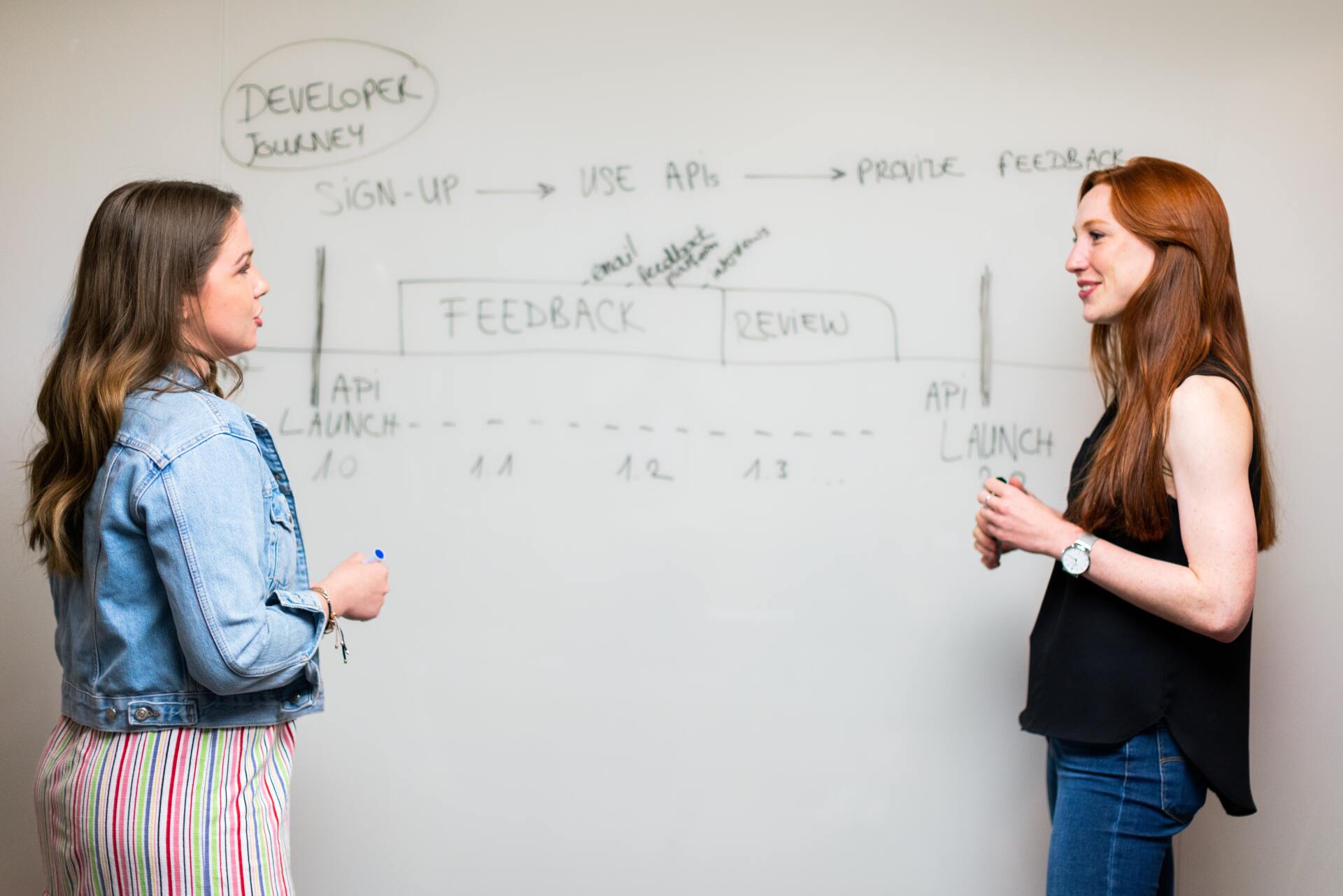Software Developers in Sweden
What is a Software Developer?
Software developers are professionals who design, create, and maintain software applications. Whether it's computer programs, mobile applications, or other digital products, software developers are the ones who make it all happen.
As a software developer, you'll be responsible for a variety of tasks depending on the specific project and role you're working on. However, some of the most common duties and responsibilities include:
- Developing software applications: This involves writing and testing code to create software applications that meet the needs of users.
- Collaborating with a team: Working closely with other developers, designers, project managers, and stakeholders is essential for success.
- Analysing user requirements: Understanding what users need and want is crucial for creating effective software.
- Debugging and testing: Finding and fixing bugs in software code is a critical part of software development.
- Updating and maintaining software: Keeping software up-to-date and functioning properly is an ongoing task.
- Staying up-to-date with industry trends: As technology changes rapidly, staying informed about the latest trends is crucial.
- Continuous learning: To stay ahead in the field, you'll need to continually learn new programming languages, frameworks, and tools.
Software Developer Jobs in Sweden
How to become a Software Developer in Sweden
As a software developer, mastering essential skills and qualifications is crucial for success in this role. These skills include strong programming skills, problem-solving skills, attention to detail, collaboration and teamwork, and effective communication skills. A bachelor's degree in computer science or a related field may be required for software development roles, although relevant work experience may also be considered.
To excel as a software developer, one must possess strong programming skills, including a thorough understanding of programming languages such as Java, Python, C++, JavaScript, or Ruby. Developers must also be able to break down complex problems into smaller, more manageable tasks, which requires exceptional problem-solving skills. Additionally, attention to detail is crucial, as even a minor error in code can cause significant issues.
Developers must be able to work effectively with other team members, including designers, project managers, and other developers, to develop high-quality software applications. Effective communication is also essential, as developers must be able to communicate technical information to non-technical stakeholders in a clear and concise manner.
While a bachelor's degree in computer science or a related field is often required for software development roles, relevant work experience may also be considered.
By possessing these essential skills and qualifications, software developers can increase their chances of success in this dynamic and constantly evolving field.
Software Developer Salary Sweden
According to Glassdoor, the average salary for a Software Developer is SEK 45,450 per year. The average workweek is typically about 40 hours, and an employee may work the occasional evening or weekend. The starting salary may depend on experience, location and company.
View our
Tech Salary Guides broken down per location for more information.

Role of a Software Developer in a Swedish Business
A software developer is a crucial member of any business team, responsible for creating and maintaining software applications that meet the needs of the business and its customers. Their role includes developing software applications using programming languages like Java, Python, C++, and others. Additionally, they analyse business requirements and collaborate with other teams like quality assurance and project management to ensure timely and budgeted software delivery.
The duties and responsibilities of a software developer include:
- Developing software applications: Writing the code that makes up the application and ensuring that it functions as expected.
- Analysing business requirements: Working closely with business analysts to understand the requirements of the business and its customers, and designing software that meets those requirements.
- Maintaining software applications: After deployment, maintaining software applications by fixing bugs, adding new features, and updating the software to keep up with changing business needs.
- Collaborating with other teams: Working closely with quality assurance and project management teams to ensure that software applications are delivered on time and within budget.
- Staying up-to-date with technology: Keeping up-to-date with the latest technologies and programming languages to ensure that software applications are using the most advanced and efficient techniques.
Software Developer Experience Requirements
If you're looking to become a software developer, you'll need to meet certain experience requirements that can vary depending on the role and the company you're applying to. Employers generally look for candidates who possess the following skills and experiences:
- Technical skills: Expertise in one or more programming languages such as Java, Python, C++, JavaScript, or Ruby is a must-have for software developers. You should also be familiar with databases, software development tools, and testing frameworks.
- Industry experience: Previous experience working in the software development industry, whether through internships, freelance work, or full-time employment, is highly valued by employers.
- Project management experience: Some employers require software developers to have experience managing software development projects. This includes knowledge of Agile methodologies, project planning, and task management.
- Communication and teamwork: Software developers need to be effective team players and excellent communicators to collaborate successfully with other developers, designers, and stakeholders.
- Continuous learning: The software development industry is constantly evolving, so a passion for learning and staying up-to-date with new technologies and trends is essential.
- Problem-solving skills: Software developers must be able to identify problems and create solutions that meet user needs while adhering to project timelines and budgets.
- Adaptability: Software developers must be able to adapt to new technologies, programming languages, and development environments as projects evolve over.
Software Developer Interview Questions
- What platforms do you use to overcome a coding problem?
- How do you remain informed about recent trends in technology, especially within your field?
- How do you explain to a non-technical person what object-oriented programming is?
- What lessons have you learned from a past software project you weren't pleased with when it was finished?
- What do you consider the pros and cons of using the Agile model in software development?
- In simple terms, describe the software development process.
- What do you do to ensure that your software is free of bugs?
- As a new developer, what would you consider your core responsibilities?
- What metrics do you use to review another colleague's code?
- What informed your decision to become a software developer?
- What are the key differences between procedural and object-oriented programming?
- How do you ensure that your code is maintainable, scalable, and reusable?
- Can you explain the difference between agile and waterfall software development methodologies?
- How do you approach debugging a complex code issue?
- Can you give an example of how you’ve incorporated user feedback into your development process?
- Can you describe your experience with version control systems, such as Git?
- How do you ensure that your code is secure and protected against common vulnerabilities?
- Can you walk me through your process for designing and implementing a new feature or application?
- How do you stay current with new technologies and programming languages?
- Can you give an example of a particularly challenging project you’ve worked on, and how you approached the problem?
For more information and advice on interviewing check out our blogs below:
How to succeed in a Technical Interview
How to prepare for your interview






